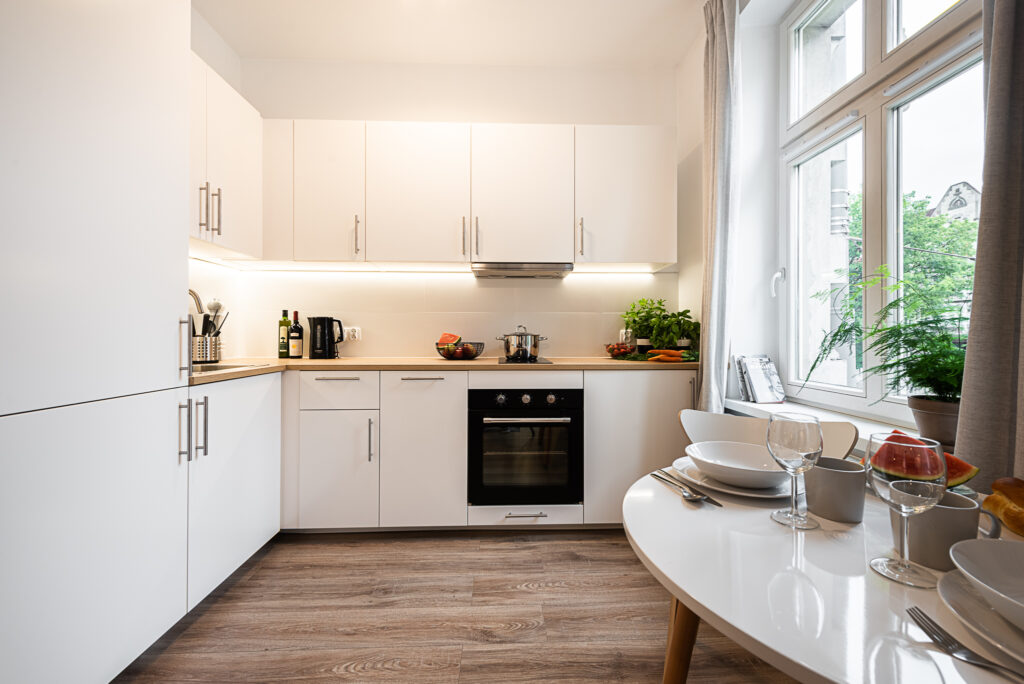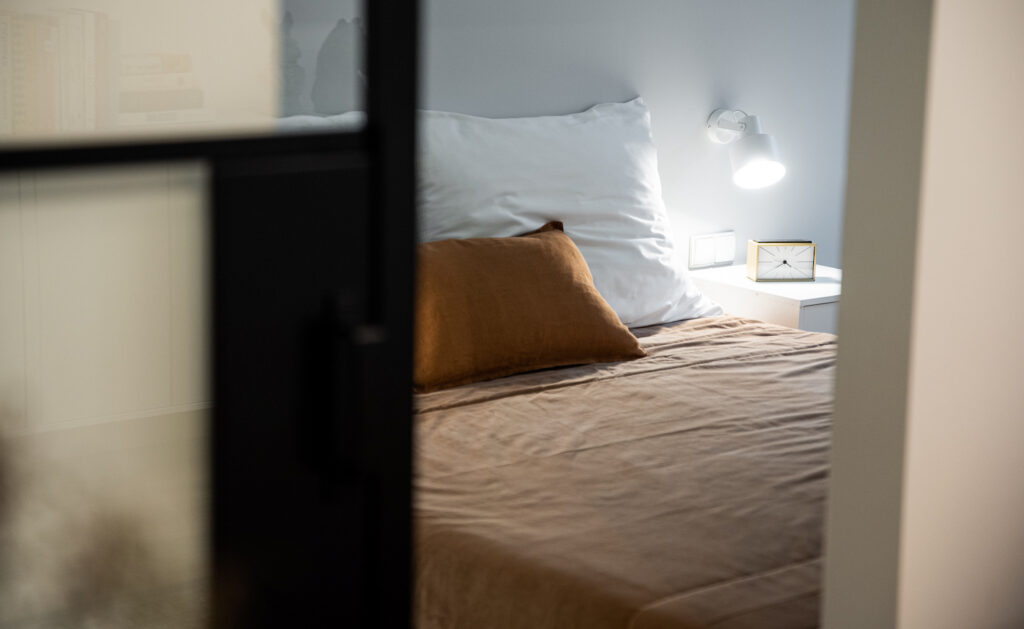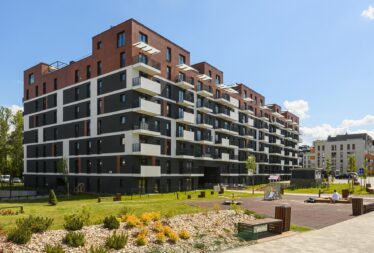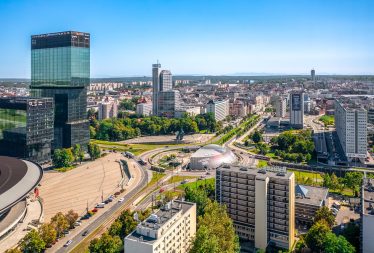Daily Habits In Poland. Understanding Polish Routines
How is everyday life in Poland? How we organize our days and weeks? What time do we get up and go to bed, how do we work, and what do we do in the evening? If you want to understand Polish routines, this post is for you. (We hope you’ll have some fun too!).
We Work Hard
Poles work a lot. We are one of the hardest working nations in Europe and our jobs are important to us. According to Eurostat, we work more than 40 hours a week, while the European average is 37.5 hours (by comparison, the Dutch work just a little more than 33 hours a week).
A Pole will never admit that they are bored or have less work. We are always busy. On the one hand, we want to show that we are not lazy, on the other hand, as a society we want to get richer and we take our work life seriously. We tend to schedule extra activities and other plans after work.
We Work With (Almost) No Breaks
It’s a bit weird to foreigners, especially from Southern Europe, but we work in a continuous mode with no official lunch break. According to Polish labor law, during a typical 8-hour workday we are entitled to just one 15-minute break (included in the working time).
Typical work hours, and thus office hours, are 8 a.m. to 4 p.m. Public offices are often open from 7 a.m. to 3 p.m. Expect that business appointments can be made as early as 8 a.m. and that after 4 p.m. no one will pick up the phone at the office.
The typical Polish mentality is to start working as early as possible in the morning. We usually get up very early, at 6:00 a.m. If you want to start work quickly (and finish it quickly), there’s no mercy. But please don’t confuse working quickly with working poorly. We work hard, and we are good at what we do (and this is a world-wide fact).
In the morning, before work, we won’t go out for our coffee. We usually have breakfast at home and get to work as soon as possible to start our 8-hour shift. Hence, the heaviest traffic is between 7:00-8:00 a.m. and then from 3:00-5:00 p.m.
Will you find the same schedule everywhere? Well, no. Of course, habits are slowly changing, especially in big cities, where more and more people will pop out for lunch, or in modern companies, where working hour policies are more flexible
If you’d like to understand this topic better, we already have a guide about working in Poland. Take a look.
Well, don’t even ask a Pole to go out for a 2-hour lunch with you, and then return to the office to work until 6 p.m. By 6 p.m. we’ll already be home, with the kitchen cleaned up after having a two-course dinner.
We Love Bread And Sandwiches
It’s an essence of the everyday Polish routine. A sandwich, kanapka, is a staple: for breakfast, a fast snack at work, or even for our evening supper. It’s a matter of saving time (it’s hard to eat a two-course lunch in a 15-minute break), but also of our bread-eating culture.
Here in Poland, we love bread and we have excellent quality. A Polish sandwich is far from a sad, pale combo of a slice of cheese and bread. It’s rather a bakery masterpiece loaded with different ingredients!
Large companies, especially manufacturing ones, have cantinas, but it’s common to eat your food there too. We already have this habit from childhood, because not all children eat the school’s lunch, and students often take their snacks with them… Obviously, it’s a sandwich.
We Dine At Home
Getting home as soon as possible is the goal of finishing work quickly. Lunch at work is rather to “survive”, while the real meal is eaten at home when everyone is back from school and work (school usually ends around 3 p.m.).
In general, Poles mainly eat at home. On the one hand, it’s a matter of money – Poles tend to save for bigger expenses, instead of spending on everyday pleasures. On the other hand, it’s a commitment to tradition and home cooking. Don’t even try to go back home and refuse to eat your mom’s cooking. It’s a serious offense…
Afternoon lunch/dinner (obiad) is the basic and most important family meal of the day. It’s always warm, often a two-course meal, and it’s supposed to be as soon as we get home, which is around 3-4 p.m.
For the first course, there’s usually soup, and for the second course, there’s some kind of meat or fish with potatoes and salad or on the table is a traditional dish like pierogi or kluski. We don’t eat as much greasy meat as foreigners think. We love dumplings and pancakes, pies, casseroles, and Italian pasta. Flour and potatoes rule on Polish tables!

We Spend Evenings At Home
Where do Poles spend their free time? Well… at home! On weekdays, after returning home, we usually don’t go out, except for daily groceries. We spend our evenings with our family, watching TV or reading a book.
This can be seen especially in smaller cities, where from Monday to Thursday the pubs are rather empty, and in the evenings people don’t go for walks. It may surprise you if it’s your first time in a non-touristy Polish city in the middle of the week, but don’t worry: it doesn’t mean it’s a zombie city at all. We simply don’t have a tradition of going out on weekdays.
Everything changes on the weekend. On Fridays and Saturdays, there’s plenty of people going out. It’s better to make a reservation if you want to make sure you get a seat at your favorite restaurant or bar.
If you want to organize a party, invite friends, plan it for a Friday or Saturday evening – these are ideal days for socializing, because we don’t have to get up early the next day. On Wednesday evening, no one thinks about partying. It’s time to set the alarm clock for 6:00 a.m.

During the weekend a Pole can go wild: whether we go out with friends or have a family celebration, we love to get together, treat ourselves to good things, and sit and talk for a looooong time.
At a Polish party, you always feel welcome, because we Poles are great hosts. And sometimes, a Polish party can get out of control. It’s like we’ve been living all week just waiting for Friday, 4 p.m.
We Cherish Weekends With Family
A typical Saturday in a Polish home means… cleaning. Yep, everyone remembers it from their childhood: you can only go outside when everything is cleaned up. Saturdays are reserved for housework: vacuuming, mopping floors, minor repairs, and other tasks in and around the house. Afternoons and evenings are usually the time for relaxing, meeting with friends or family parties (in the summer, it’s always a barbecue – our national pastime activity).
Sunday is a very quiet day. On Sundays, stores are closed and there is no shopping. There are far fewer people in the cities, and traffic is light, but parks and parking areas around them are full, especially when the weather is nice.
Poland is a Catholic country, so many of us attend morning mass. Then there is the family dinner: on Sunday it’s around 1 P.M. A Polish Sunday dinner is often prepared starting in the morning and takes many hours, and traditionally it starts with chicken broth with noodles. For the second course, it’s usually some kind of meat with side dishes. Then it’s time for coffee with homemade cake and some rest.
Sunday evening, our mood is often spoiled. Tomorrow is Monday again…
We Take Days Off To… Work, Not Rest
It’s already a bit of a joke and a bit of a stereotype, but a Pole always has something to do. We often take days off from work not to just rest or travel, but to do something at home, like a renovation.
But you already know: we are hard-working, so we have to make the most of every opportunity. We hate wasting time and doing nothing.
…
Here’s the image of a typical Pole: gets up early, works hard, and eats sandwiches between multiple daily tasks. Is that true of all of us?
Partly yes, but remember: everything is changing. Poles travel more and more and bring back home that international experience. We open up to new cultures and this naturally affects our habits. New work models allow us to be flexible, and generational changes cause us to live differently.



